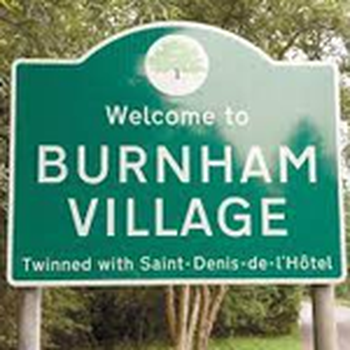Criminals are not on lockdown
Residents are being reminded that criminals do not follow lockdown guidance and can still strike when people go out for essential food shopping, exercise or helping vulnerable people. Shutting windows and securing doors are the best ways to prevent opportunistic thieves from striking.
Lockdown is also the perfect opportunity to reassess home security measures and identify areas which may need improving, as well as property protection such as getting work tools and bikes security marked. Residents are also warned not to advertise new purchases when restrictions are relaxed by visibly placing boxes and wrapping on show outside the property.
Criminals are also prowling online to scam people and businesses out of money, offering goods and services that do not exist, or to obtain personal details. These scammers can knock on the door, or contact people by phone, email, text, or on social media.
Alan Sinclair, director of adults and communities, said: “The country is fighting the coronavirus public health emergency by staying at home but criminals will still strike.
“They are out there on the streets of Slough looking for opportunities and still operating. We have had reports of property being grabbed through open windows.
“There are also scammers who are experts at impersonating people, organisations and the police on the phone and online. They spend hours researching their victim hoping they will let their guard down for just a moment when they can act.
“We are reminding people to conduct the basics like making sure windows are closed but also use up to date security software online.”
The council’s trading standards department has given the following advice if residents or businesses are approached unexpectedly.
• Stop - Take a moment to think before parting with money or personal information. Confirm requests are genuine by using a known number or email, or one found independently, to contact an organisation. Businesses need to be careful of urgent payment requests, a change in supplier bank details, or requests to provide financial information.
• Challenge - Could it be fake? It is ok to reject, refuse or ignore any requests. Only criminals will try to rush or panic their victim. Do not click on links and attachments in unexpected or suspicious texts or emails. The police or a bank will never ask people to withdraw or transfer money to a different account or probe for a PIN. Businesses should verify all payments and supplier details directly with the company on a known phone number or email.
• Protect - Contact the bank immediately if residents have fallen victim to a scam and report it to Action Fraud on 0300 123 2040.
• Report – Pass on suspicious texts by forwarding the original message to 7726, which spells SPAM on your keypad.
Detailed advice can be found through a variety of organisations.
Counter fraud advice is available online, including from Scamsmart, CIFAS, TakeFive, Citizens Advice, Trading Standards and the National Cyber Security Centre.
There is bespoke advice about COVID-19 fraud on the Action Fraud website. Reporting to Action Fraud can be done online at https://www.actionfraud.police.uk or by calling 0300 123 2040 and follow Action Fraud on Twitter.
To report offers of financial assistance from HMRC contact phishing@hmrc.gov.uk.
There is also a tool for reporting phishing e-mails at report@phishing.gov.uk where you can forward suspicious mails.
There is also a lot of useful information about home security on the Thames Valley Police website - https://www.thamesvalley.police.uk/police-forces/thames-valley-police/areas/advice/home-security-guide/



